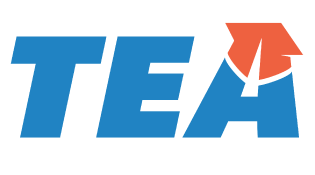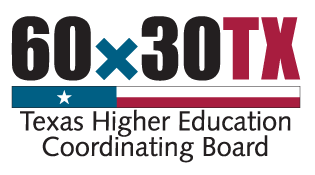COVID-19 has been an education game-changer.
COVID-19 has rocked our world as educators. Schools have closed, in-person classes and activities have pivoted to virtual or hybrid, and as we struggle to keep up, we worry about our students falling behind. We are committed to serving the dynamic needs of Texas educators, particularly as it relates to college and career readiness. We provide consistently updated information on COVID-19 resources for Texas educators. We recognize that your students are becoming more independent and tech-savvy during the pandemic and are managing their time and education from home in many cases. Keeping them on track for postsecondary success is a top priority.
This post includes everything you need to know about the college and career planning process in the time of COVID, and it is narrowed down into the following sections:
- How can educators get (and maintain) their footing?
- What works in the classroom?
- How do we help students stay on track?
- How do we help educators stay on track?
- Stay on top of our timely updates.
Be sure to check out our college and career planning resources for Texas students, which outlines tools that you can pass on directly. And don't forget to refer to the ultimate source for all postsecondary planning information for professionals: the Texas OnCourse Academy.
How can educators get (and maintain) their footing?
Be sure to check out our open discussion on How to Help Students during COVID-19 (April 2020), which is chock-full of innovative, insider tips from other educators. And don't miss our webinar on Gearing Up for Back to School during COVID-19 (August 2020). We covered CCMR updates, tools for accountability, data-driven strategies for programs, and Texas OnCourse resources that can enhance remote teaching, counseling, and advising practices. Those in leadership should review these resources for school administrator support during COVID-19.
If you’re like most in-person educators, making the rapid transition to virtual instruction has been the challenge that keeps on challenging. There are some things that educators can do to make the most out of their remote teaching during COVID-19:
- Take movement breaks
- Collaborate
- Get hooked up with quality wifi
- Set expectations and policies
- Amp up your tool belt
School counselors, specifically, face unique circumstances when connecting with their students effectively. In a role that is typically marked with face-to-face interaction and an “open-door” policy for course planning and emotional support, using a computer screen some or all of the time can seem daunting. We’ve compiled a list of tips that will help you thrive in your virtual school counseling role.
You may have heard the adage: “you can’t pour from an empty vessel.” Self-care has become a fuzzy term that often conjures up images of massages and hot beverages, but self-care for counselors during COVID-19 can mean something more practical. Stopping work at a reasonable time or establishing boundaries with students and parents can go a long way toward preserving your sanity and wherewithal.
What works in the classroom?
One of our top concerns as educators during COVID-19 is keeping all students on track, including students with special needs. Fortunately, the Texas Education Agency (TEA) has published several new resources for special ed students, military-connected students, English language learners, and students who are in foster care or experiencing homelessness. For special education students, the new resources include information related to Section 504 and evaluation and FERPA considerations. For English language learners, TEA has posted updated FAQs, including guidance on proficiency assessments. All resources can be found on TEA’s Special Education and Special Populations homepage.
We educate students because we care about bright futures. We want postsecondary dreams to be pursued, but before that, endorsements must be selected and four-year plans made. In order to help our students experience the smallest amount of disruption possible, we must be united in our efforts. Check out our tips for keeping district, campus, and classroom practices during COVID-19 cohesive.
Career and technical education, which is typically hands-on, doesn't have to take a back seat just because of the pandemic. These remote CTE lesson plans will come in handy.
When it comes to the virtual education space, students and educators alike have a wonderful opportunity for communication development. Here are a few ways that educators can help students strengthen their virtual communication skills:
- Encourage them to start with simple verbiage
- Pair students with a buddy to talk it out
- Have students write a practice email
- Let your students know you care about their comprehension
- Review listening skills
- Create visual aids that help students understand processes
One way that educators have found tried-and-true tips during this atypical time is by consulting their peers. Online teaching tips that are educator-tested and approved can come in handy in a pinch.
There are many online tools that educators can use to manage their virtual classroom, but Google Classroom is one we especially love for its ease of use. It offers many useful features such as the ability to upload videos, create quizzes, and coordinate collaborative assignments. Additionally, a broad array of other online tools integrate with Google Classroom and make the learning experience more engaging. Don’t miss this more detailed list of tips for using Google Classroom during COVID-19.
Remind and Screencastify have also been recommended by veteran school counselors as useful tools for virtual school counseling. Our webinar on Teacher Resources for Helping Students during COVID-19 goes into more detail on the following ways educators can enhance their digital communication practices:
- Explore careers and endorsements from home with MapMyGrad
- Stay connected using Google Classroom (check with your district)
- Text important info using Remind
- Record short videos and share less text with Screencastify
- Build useful newsletters with Smore templates
- Use Facebook, Twitter, and YouTube to connect digitally
Now that we are several semesters into the reality of virtual and hybrid schooling, we think it’s important to gather knowledge from educators who are working on the ground level every single day. We asked six Texas school counselors from six very different communities about their tips for virtual school counseling.
How do we help students stay on track?
The face of college planning has changed dramatically in the wake of COVID-19. Deadlines have shifted, enrollment processes have changed, and new systems for sending students to college have been created. In our September 2020 webinar, Adjusting to College Planning Under COVID-19, we broke down how to help students plan for college during COVID-19 and shared resources to keep you on track. More resources, such as the ones found in this webinar, can be found in the Texas OnCourse Academy under the College Finances module, the Admissions and Application competency, and Financial Aid Application Process competency.
The pandemic won’t last forever, so we should try to mitigate the lasting impact it has on our students’ education. Studies from Spring 2020 and related data from Fall 2020 show that many graduating seniors may not continue on with their college enrollment plans due to the pandemic. To this end, we have partnered with state and national leaders to limit the effect of COVID-19 on Texas college enrollment. You may need to adjust your strategy for encouraging FAFSA completion among your students.
Be sure to check out our tips for supporting seniors who are college-bound during COVID-19. Next, help your students craft a college prep checklist. Be aware that due to complications administering the SAT and ACT, many Texas schools have announced that entrance exam scores will be an optional part of admission applications through 2021. Be sure to check out this list of test-optional schools in Texas.
Many of your students have likely experienced changes to their personal and family income due to the pandemic. These changes can affect expected family contribution, so your students may need help submitting a financial aid appeal. This can seem like a daunting task, but it’s been simplified. Students can use a free, comprehensive app called SwiftStudent to work through the following process:
- Learn about eligibility
- Use a free template to write an appeal letter
- Print and take the letter to their financial aid office
- Wait for the school to accept or reject their request
When guiding students on how to choose a college during COVID-19, educators should support students by considering budget, student needs, school offerings, and first-person insight. Even though students and families may be disappointed by limitations to in-person college visits, students still have many opportunities to engage in Texas college virtual tours.
How do we help educators stay on track?
Professional development for educators has never been more important. Many summer PD plans were derailed, and educators remain hungry for tools and resources that will make their new virtual routines easier. Remote PD has become the go-to solution for educators’ needs. Fortunately, free PD for teachers is available.
Educators can also engage in free, on-demand, self-guided professional development using the Texas OnCourse Academy. Using the Academy, you can become the go-to source for career and college planning. The Academy has over 30 learning modules on endorsements, graduation plans, career pathways, entrance exams, college applications, military academies, financial aid, and more. All these free modules are available remotely, and you can review them at your own pace.
Keeping educators up-to-date is very important to us, so we’ve ensured that the Academy has been updated with the most recent and relevant COVID-19 information. These updates to the Texas OnCourse Academy modules include new information related to COVID-19, revisions to career clusters, and FAFSA information related to HB3. We’ve also updated a number of PDF downloads in the modules as well. Be sure to review these changes for any critical information to pass along to your students!
Stay on top of our timely updates.
To make your return to school easier, we’ve been providing weekly Facebook Live videos about the timely topics that will inform and help you serve your students effectively. These include updates on the following:
- TEA Updates during COVID-19 (8/7/20)
- College Prep during COVID-19 (8/18/20)
- Free PD for Teachers during COVID-19 (8/21/20)
- Resources for College Readiness during COVID-19 (8/27/20)
- Financial Aid Tips during COVID-19 (9/14/20)
- How COVID-19 Has Affected Dual Credit (9/17/20)
- Scholarships during COVID-19 (10/8/20)
Be sure to like the Texas OnCourse Facebook page, where we share tools and resources for educators daily. We record updates on Facebook Live every Thursday at 4 p.m. And don’t forget to follow our Instagram account – our engaging infographics and reminders are perfect for sharing with students.






